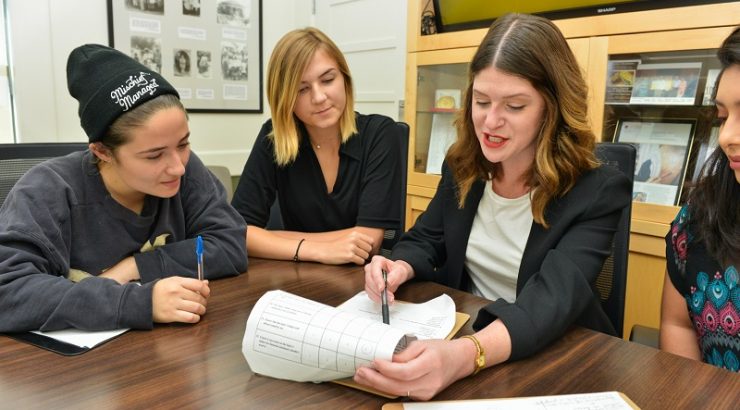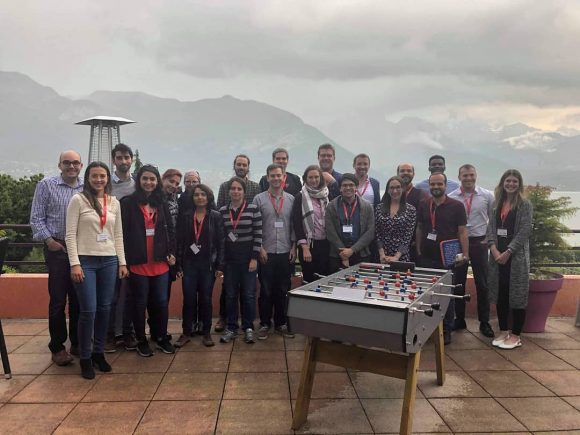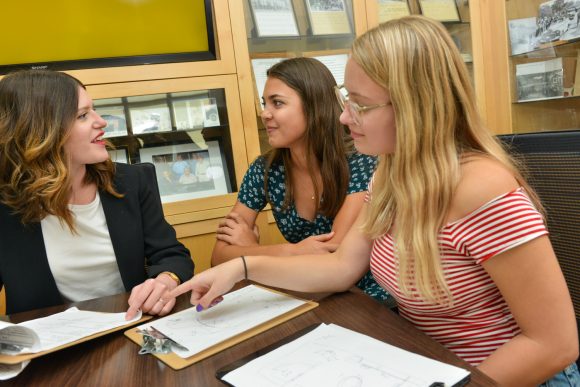
Understanding Love, Sex, and Consensual Non-Monogamy Dr. Amy Moors presents her research at prestigious Tech and Relationship Conference
August 8, 2019
Dr. Amy Moors joined Chapman University’s Crean College of Health & Behavioral Sciences in 2018 as an Assistant Professor of Psychology. Her research addresses the impact of inequity on people’s belonging and well-being in intimate and professional contexts. Dr. Moors focuses on the relationships people have with others (romantic partners, family, colleagues) and with broader institutions (workplaces, marriage). Much of her research focuses on issues related to gender, sexuality, diversity, and well-being.
Earlier this summer, Dr. Moors was inducted into the European Association of Social Psychology. She was also invited to present her research at the Tech and Relationships Conference in Annecy, France. The conference was a collaboration between top relationship researchers and industry members. Dr. Moors’ talk, titled “A new look at the fundamentals: Understanding love, sex, and consensual non-monogamy,” provided an overview of the public’s growing interest in engaging open relationships and polyamory. Dr. Moors argued that new dating technologies should consider the current state of modern love and sex, taking into account the varied ways in which people desire to partner.
From Dr. Moors’ talk:
“People engage in romance in a variety of ways—some date, form a couple, or have more than one romantic and/or sexual partner. In Western society, there is a well-defended ideology of the committed relationship that prioritizes monogamy and stigmatizes people who do not conform to this ideal. This ideology also influences how researchers construct theories of intimacy; implicitly assuming that monogamy is optimal. In this presentation, I will discuss my research on consensual non-monogamy, including the prevalence of engagement (n=8,718) as well as links between attachment, attitudes, and relationship quality. In one study, avoidance (not anxiety) predicted willingness to engage in various consensually non-monogamous relationships (n=1,281). However, people engaged in consensual non-monogamy exhibited lower levels of avoidance (indicative of security) than people engaged in monogamy (n=1,308). In another study, I examined whether the attachment relationship with multiple partners affects relationship quality among people engaged in polyamory (n=357). I conclude with ways that scientists could interface with these relationships and technology to understand modern love and sex.”
In addition to teaching and presenting her research around the world, Dr. Moors directs the Onward Lab at Crean College. The lab investigates a variety of issues at the intersection of gender, sexuality, and relationships to narrow health and well-being inequalities. Specifically, this lab focuses on diverse expressions of sexuality and inclusion/belonging in higher ed. Undergraduate research assistants work individually and collaboratively on a range of projects and activities.




